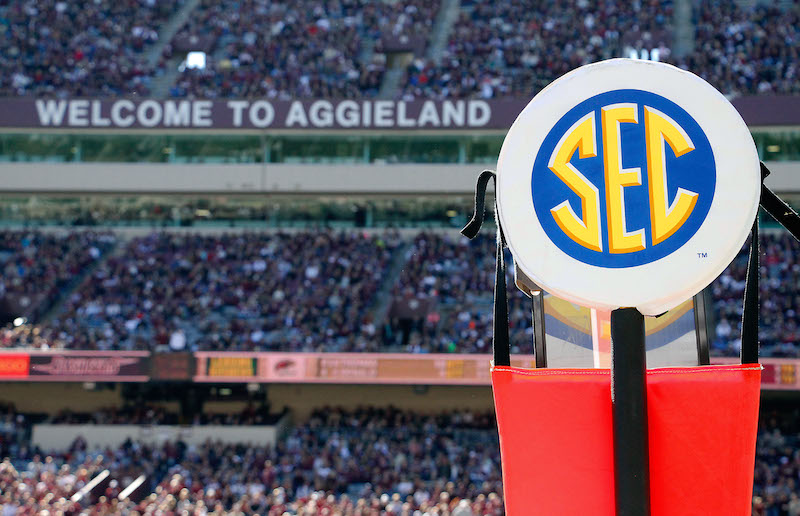
There’s a perception that exists in some parts of the country (read: Big Ten and Pac-12) that the SEC is a haven for those in college football who run afoul of NCAA rules and regulations.
“They’re always cheating” and “they buy players” are phrases thrown around, usually followed by “they don’t go to class anyway.”
In this case, perception doesn’t necessarily match reality.
Florida self-reported some recruiting violations in February of last year, but the NCAA accepted the school’s recommendations for penalties. It can hardly be considered a serious sanction.
Georgia running back Todd Gurley’s autograph “scandal” resulted in a four-game suspension for him in 2014.
The last incident that came with a scholarship reduction involved Mississippi State in 2013. The NCAA found irregularities in the recruitment of Will Redmond, and agreed to the school’s self-imposed penalties — including a two-scholarship reduction for the 2013 season.
One NCAA investigation per year in the last three isn’t any worse than the ACC or Big 12, who have had a similar number of run-ins with the organization in the same time frame.
The last time the NCAA dropped the hammer on a SEC school? The year was 2004, and the school was Mississippi State.
Recruiting violations earned the Bulldogs a postseason ban and scholarship reductions, and that marks the last time any SEC football school received a postseason ban.
Other NCAA football scandals from other major conferences have grabbed the headlines since then. Penn State (Jerry Sandusky), Ohio State (tattoo gate), Miami (Nevin Shapiro) and Southern Cal (Reggie Bush) have all run afoul of the NCAA in much larger ways than the SEC has lately.
The league has been on the wrong end of NCAA justice a number of times in the past, however. The most notable ones include:
South Carolina (2012): After an NCAA investigation found that the program was allowing players to live at a reduced cost at a local hotel, the program self-imposed scholarship reductions and other minor sanctions.
Alabama (2009): The school was found to have improperly supplied textbooks and other school supplies for its players. The result was 21 wins vacated between 2005 and 2007 and three years’ probation, which expired in 2012.
Alabama (2002): The Tide drew a scholarship reduction and a postseason ban when caught giving impermissible benefits to potential recruits and high school coaches.
Kentucky (2000): Coach Hal Mumme was caught providing assistant coaches with money for recruits to entice them to Kentucky. He was fired, but the NCAA still imposed a postseason ban for the 2002 season.
Alabama (1995): Cornerback Antonio Langham was caught receiving illegal benefits from an agent, resulting in a one-year postseason ban, the loss of scholarships, probation and the vacating of eight wins and a tie from the 1995 season.
Arkansas (1994): The NCAA found that Arkansas football and men’s basketball players were being overpaid for part-time jobs at J&H Trucking Service, a booster-owned company. The football program was placed on probation and endured a scholarship reduction.
Auburn (1993): A former player was found to have received illegal benefits from Auburn’s coaches and boosters, and as a result the Tigers were put on two years’ probation and banned from the postseason during those two seasons. The first season following the infraction, Auburn was the nation’s lone unbeaten team, but could not compete in a bowl game or the SEC Championship Game.
Florida (1989): Coach Galen Hall was found to have been supplementing assistant coach salaries with his own money, as well as paying child support-related costs for one of his players. The school was slapped with probation and a bowl ban for the 1990 season.
Mississippi State (1975): When the NCAA discovered players were receiving illegal benefits, it imposed a two-year probation period, a two-year postseason ban and two years of reduced scholarships. The school fired three assistant coaches for their role in the violations, but the Bulldogs were forced to vacate 18 wins and one tie from the 1975-77 seasons.
Randy Capps is a contributing writer for Saturday Down South. He covers SEC football, South Carolina and Georgia.







